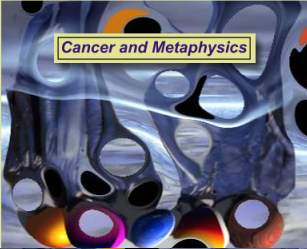
 |
The Cancer Journal - Volume 5, Number 1 (January-February 1992)
How does one gain knowledge of the outer world? Our senses perceive it as signals
that are put into the organism and processed. Signals are then assembled into
patterns that are interpreted with propositions about their nature. Propositions
may be sorted into empirical (or a posteriori), and a priori.
Empirical propositions are gained by experience, and a priori propositions
determine how information is processed (1, 2). A child playing with marbles
may learn that when adding two marbles to two other marbles it gets four marbles,
which is an empirical statement. But when realizing that "two and two are four"
independently of the marbles it played with, the proposition is a priori.
In this sense propositions of pure mathematics are a priori. Propositions
may be also grouped according to their grammatical content, and whether they
provide new information about the world. An analytic proposition is one in which
the predicate is part of the subject, e.g., " a tall man is a man', and a synthetic
proposition is one that is not analytic, and is generally gained by experience,
e.g. "Napoleon was a man".
As long as phenomena do not interact, it appears as if analytic and a priori
propositions on one hand, and synthetic and empirical, on the other, are synonymous.
The difference between them becomes apparent when propositions are applied to
interacting phenomena, particularly if it appears as if one causes the other
and we are led to formulate the law of causality. We may then wonder whether
this law is analytic or synthetic? In other words, is it part of the outer world,
or was it imposed by our mind on the processed signals. Hume proved that the
law of causality is not analytic, and yet in spite of being synthetic we can
never be certain of its truth. Kant accepted the view that the law of causality
is synthetic, but nevertheless maintained that it is a priori (1, 2).
In other words, the law of causality describes nature, and yet was not conceived
by us empirically. Kant called such propositions "synthetic a priori".
Kant created the "synthetic a priori" concept to account for knowledge
of the world that was not gained by empirical means. As Bertrand Russell puts
it: "Although none of our knowledge can transcend experience, it is nevertheless
in part a priori and not inferred inductively from experience" (1). The
concepts belongs to metaphysics that asserts its existence and is less concerned
with how "synthetic a priori" knowledge is gained. How does one gain
knowledge of the world without experience? The answer is given by the theory
of evolution. But first we ought to distinguish between knowledge of the individual
and knowledge of the species. The first is gained by experience, while the other
is acquired by natural selection.
Even the smallest microbe on earth is guided by "synthetic
a priori" knowledge that was conveyed to it by the species. An ameba
knows how to avoid some noxious agents even before engulfing them, since carrying
in its genome "synthetic a priori" information that is necessary for
its survival. Nature selects individuals with most adequate "synthetic a
priori" knowledge, and the "less fit" are eliminated. The "synthetic a
priori" actually guides animal behavior, and its nature may be understood
by studying behavior as done by ethology (3). Each species has a typical
behavioral repertoire, known as ethogram that is innate and may be manifested
at birth or later. For instance, the newly hatched chick knows that its mother
is waiting outside the egg shell. Its expectations are nurtured by a priori
knowledge that was not gained by experience. The act of mother selection, coined
by K. Lorenz as imprinting, has to be distinguished from learning from experience.
E.H. Hess demonstrated what happens when the chick's expectations are not fulfilled.
He substituted for the real mother a model with a loudspeaker inside, that moved
by mechanical means. The imprinted duckling followed the model as if it were
his real mother (4). Outside the laboratory it would have paid for this mistake
with its life and "selected out" from the species.
Immunology presumes that the organism carries "synthetic a priori"
knowledge of antigens, and when necessary produces antibodies against them.
Not only antigens, but any noxa that was encountered by the species since life
began, had to leave its imprints on our genome. These are embodied as strategies
that are triggered when noxae hit the organism (5). The major task of medicine
is to mobilize a priori" knowledge for the patient's own benefit.
In this forum we are concerned mainly with one disease that still evades our
understanding and ask: What is the "synthetic a priori" knowledge
of cancer that could be harnessed in order to heal it?
G. Zajicek
REFERENCES
1. Russell B. A History of Western Philosophy. Simon and Schuster, New York,
1945.
2. Steiniz Y. In Defence of Metaphysics. Dvir Publishing House, Tel Aviv, 1990.
3. Eibl-Eibesfeldt I. Ethology, the Biology of Behavior. Holt Reinhart and Winston
Inc., 1975.
4. ibid p. 260.
5. Zajicek G. What is a disease? Cancer J 4, 296, 1991.